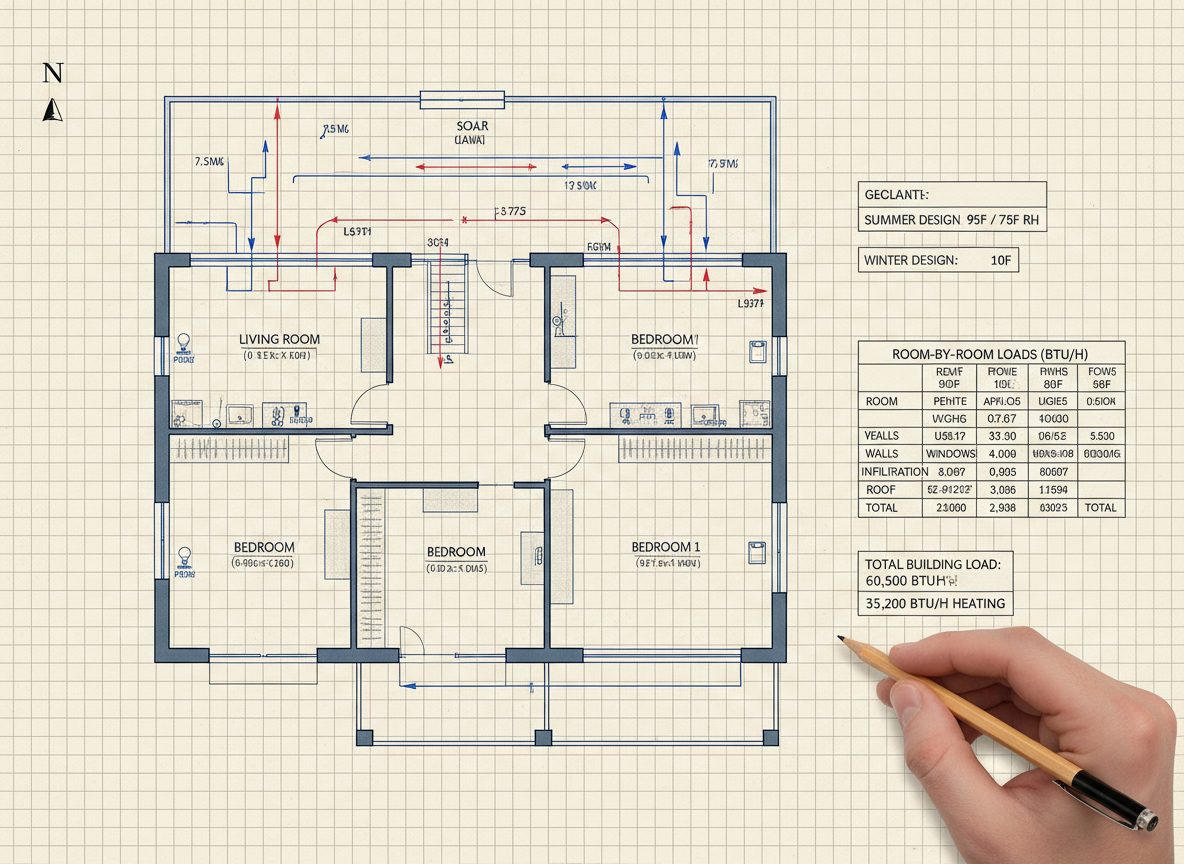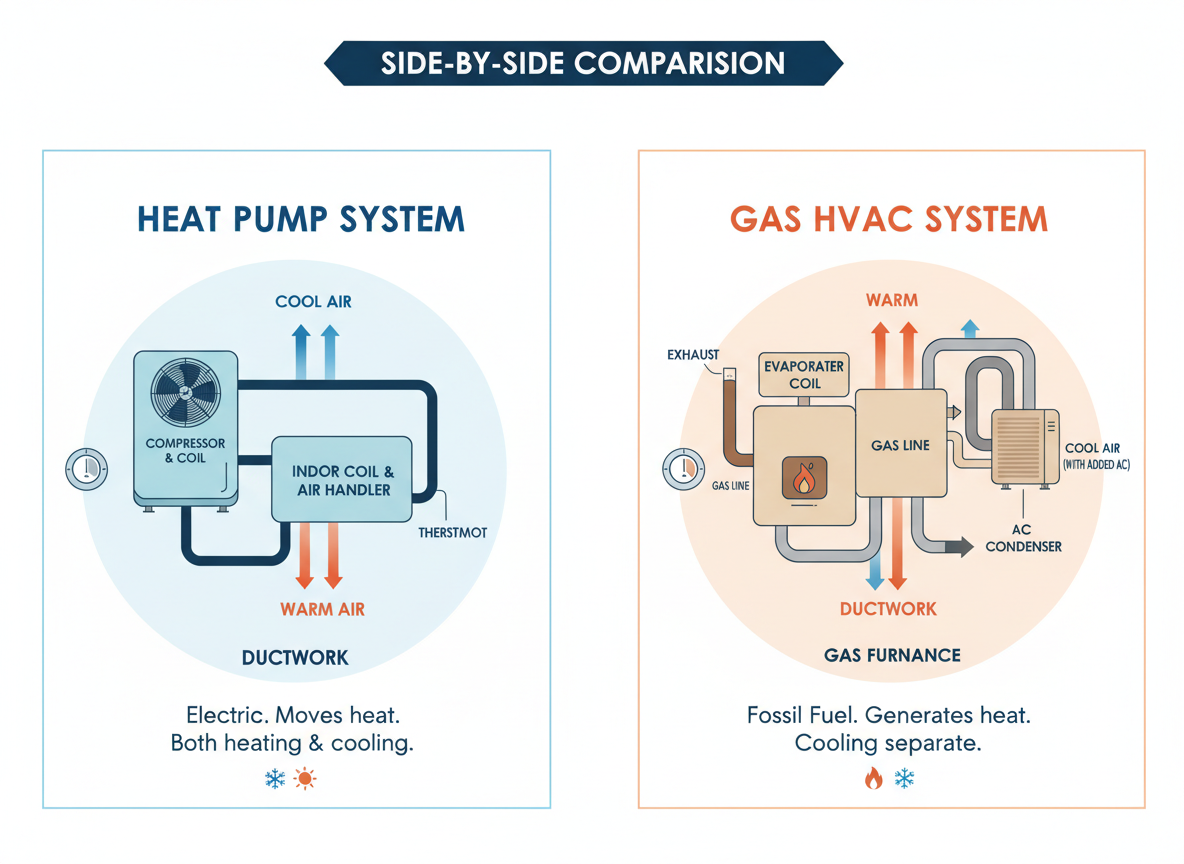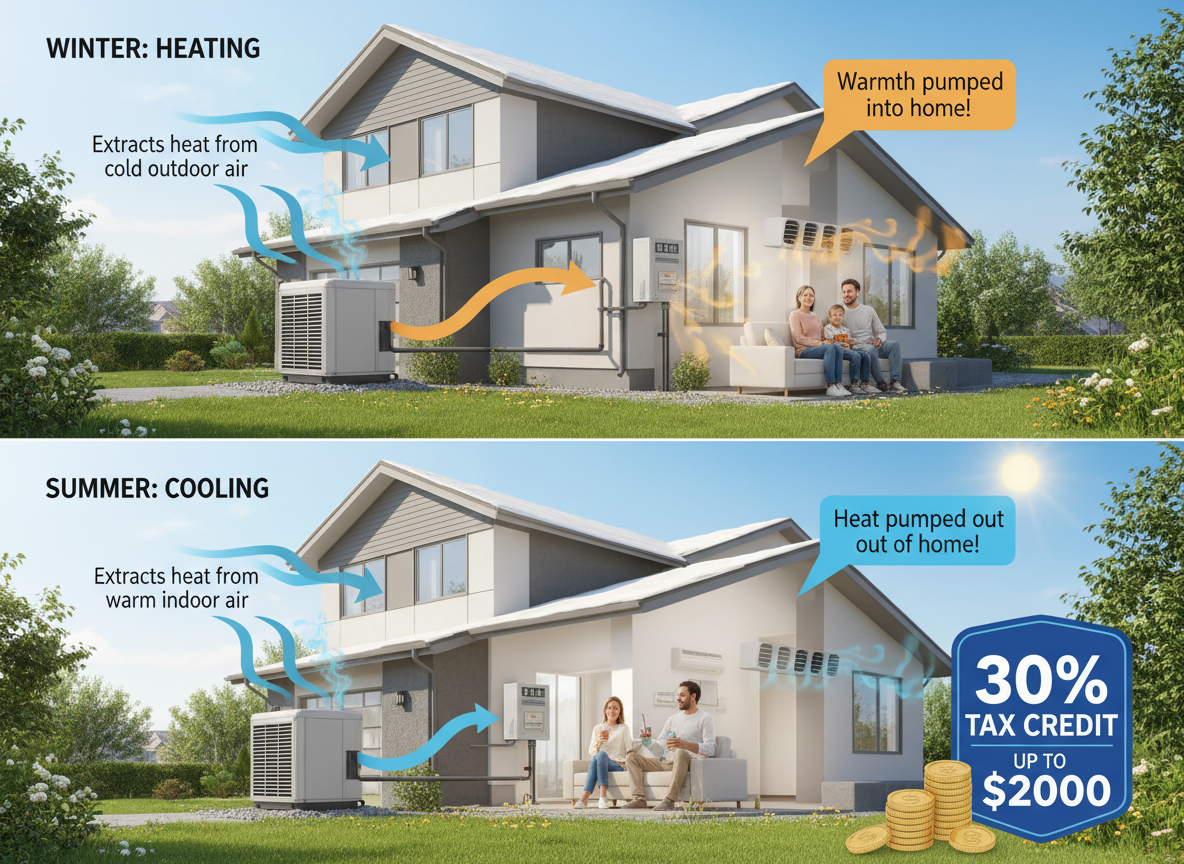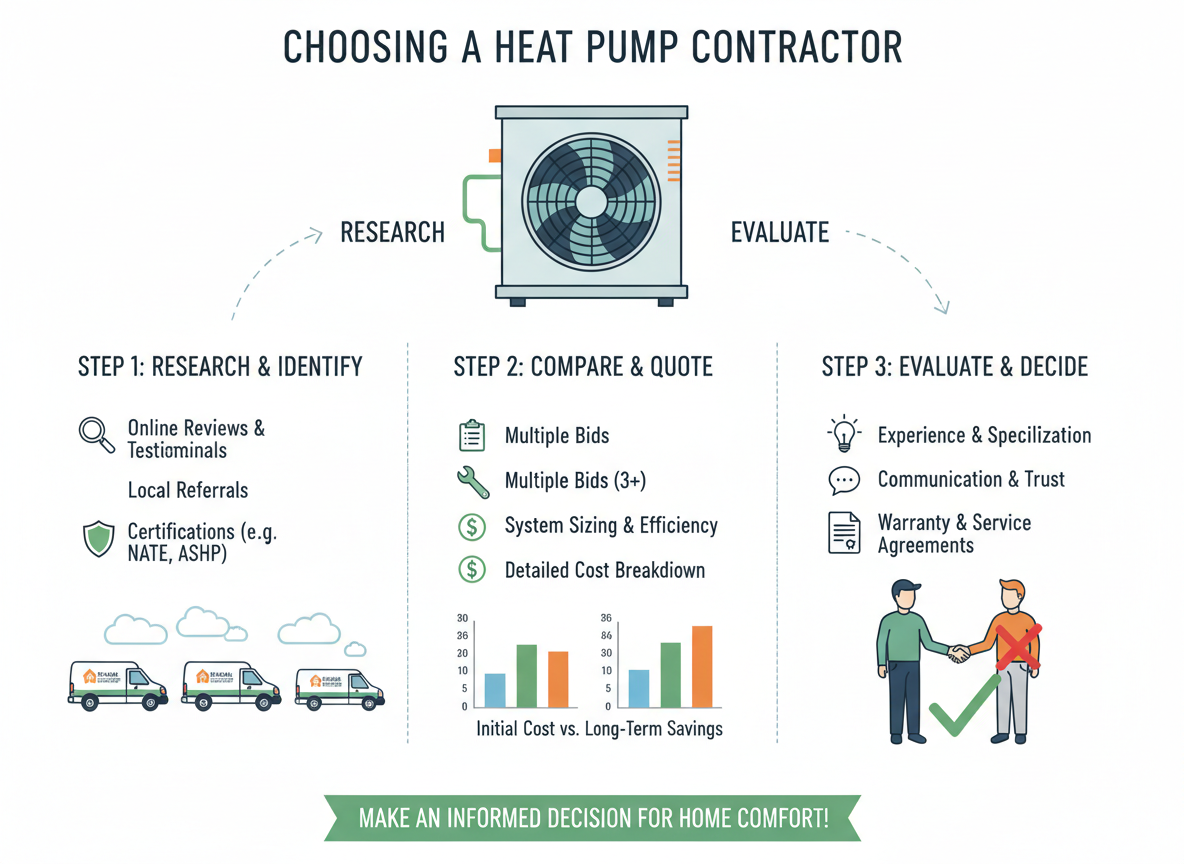
Winter can bring unexpected challenges, especially when your heating system decides to act up. In this guide, we'll walk you through a step-by-step process on how to handle emergency HVAC situations during the coldest months. Whether you're dealing with a sudden breakdown or a system that's not performing optimally, these tips will help you navigate through the chilly predicament until professional furnace repair help arrives.
Check the Thermostat
Ensure the thermostat is set to the desired temperature, correct settings, and the heating mode is selected. Sometimes, simple adjustments can resolve issues. If your thermostat uses batteries, replace them. A low battery can cause malfunctions. This simple yet crucial step can often resolve issues without the need for professional furnace repair intervention, ensuring your home stays comfortably warm during the winter months.
Reset the Power
Locate the circuit breaker for your HVAC system and check if the switch is in the "on" position. If it's tripped, reset it and observe if the system starts working. Listen for the sound of the system turning on, and observe if warm air begins to circulate. In some cases, breakers may trip repeatedly. If this happens, it could indicate an underlying issue. Reset the breaker one more time, but if it trips again, it's essential to consult with a professional HVAC technician. If the circuit breaker is not tripped you can reset the furnace. You can unplug the furnace from the wall and plug it back in to reset it and see if it starts up.
Examine Air Filters
Clogged or dirty air filters can impede airflow. Identify the location of your HVAC system's air filters. They are typically situated in or near the air handler or furnace unit. Check the filters and replace them if necessary. Regularly inspect your air filters, ideally every one to three months, depending on factors like the type of filter and the level of system usage. Clean filters allow for better airflow, preventing strain on the HVAC system and enhancing overall efficiency. Regular filter replacement contributes to better indoor air quality by trapping dust, allergens, and pollutants, preventing them from circulating throughout your home. While homeowners can perform routine filter checks and replacements, it's advisable to include professional HVAC maintenance, at least annually.
Inspect Vents and Registers
Ensure all vents and registers are open and unblocked especially your return vent. Obstructions can limit airflow and affect heating performance. When the HVAC system operates with unobstructed vents, it can run more efficiently, potentially leading to energy savings and lower utility bills. If you experience persistent heating issues or if you suspect problems with the ductwork, it's advisable to schedule a professional HVAC inspection. Professionals can identify and address issues that may not be apparent during routine checks.
Emergency Heating Methods
If your main system is down, use electric space heaters as a temporary solution to heat specific areas. Follow safety guidelines and avoid overloading circuits. Choose models with built-in safety features, such as tip-over protection and overheat shut-off. Keep the heater on a flat, stable surface away from flammable materials. It is essential to prioritize safety when using space heaters. Never leave space heaters unattended. Turn them off when leaving the room or going to bed. Keep pets and children away from the heaters to prevent accidents. Keep warm with extra blankets and layers of clothing until the issue is resolved.
When to Seek Professional Help
- Persistent Issues: If the problem persists after basic troubleshooting, it's time to call a professional HVAC technician for furnace repair. HVAC professionals have the knowledge and tools to conduct a thorough inspection, diagnose complex issues, and implement solutions that go beyond the scope of routine homeowner troubleshooting.
- No Heat Output: If your heating system is blowing cold air or not producing heat, it indicates a more complex issue that requires expert attention. Lack of heat output can be caused by various factors such as a malfunctioning ignition system, faulty thermocouple, or issues with the heating elements. A professional technician can diagnose and address these complex issues.
- Unusual Noises or Smells: Strange noises or odors coming from your heating system could be signs of a serious problem. Turn off the system and contact a professional immediately. Unusual sounds may indicate issues with components like the blower motor, fan blades, or ignition system. Unpleasant odors can be signs of gas leaks, electrical problems, or issues with the heating elements. Prompt professional intervention is necessary to prevent safety hazards.
Contact LA Heating and Air
Even if there are no apparent issues, scheduling regular professional maintenance for your heating system can help prevent potential problems and ensure optimal performance. Remember, safety is paramount. If you're unsure or uncomfortable with any troubleshooting steps, it's best to wait for professional assistance. A certified HVAC technician has the expertise to diagnose and address issues efficiently, ensuring your home stays warm and comfortable throughout the winter. Give us a call or contact us online we are here to help!
What to Do When Your Heating System Fails in Winter Related Posts:






















.png)














